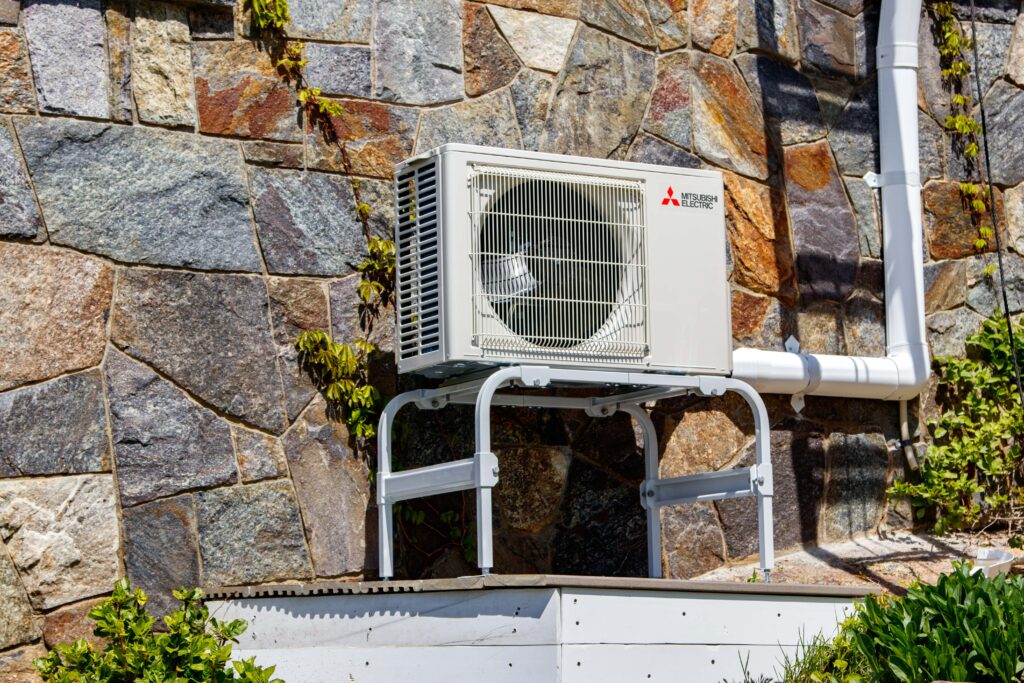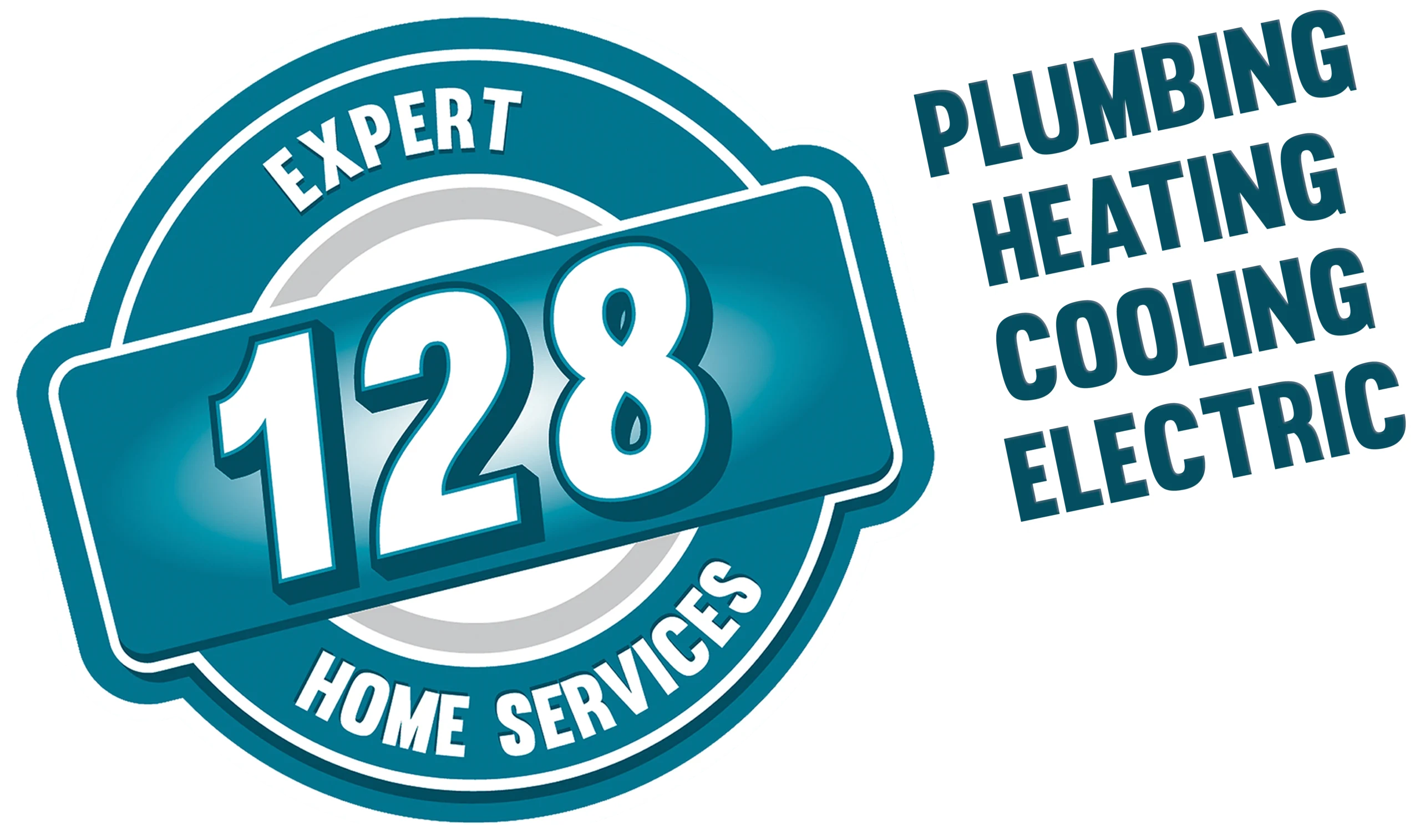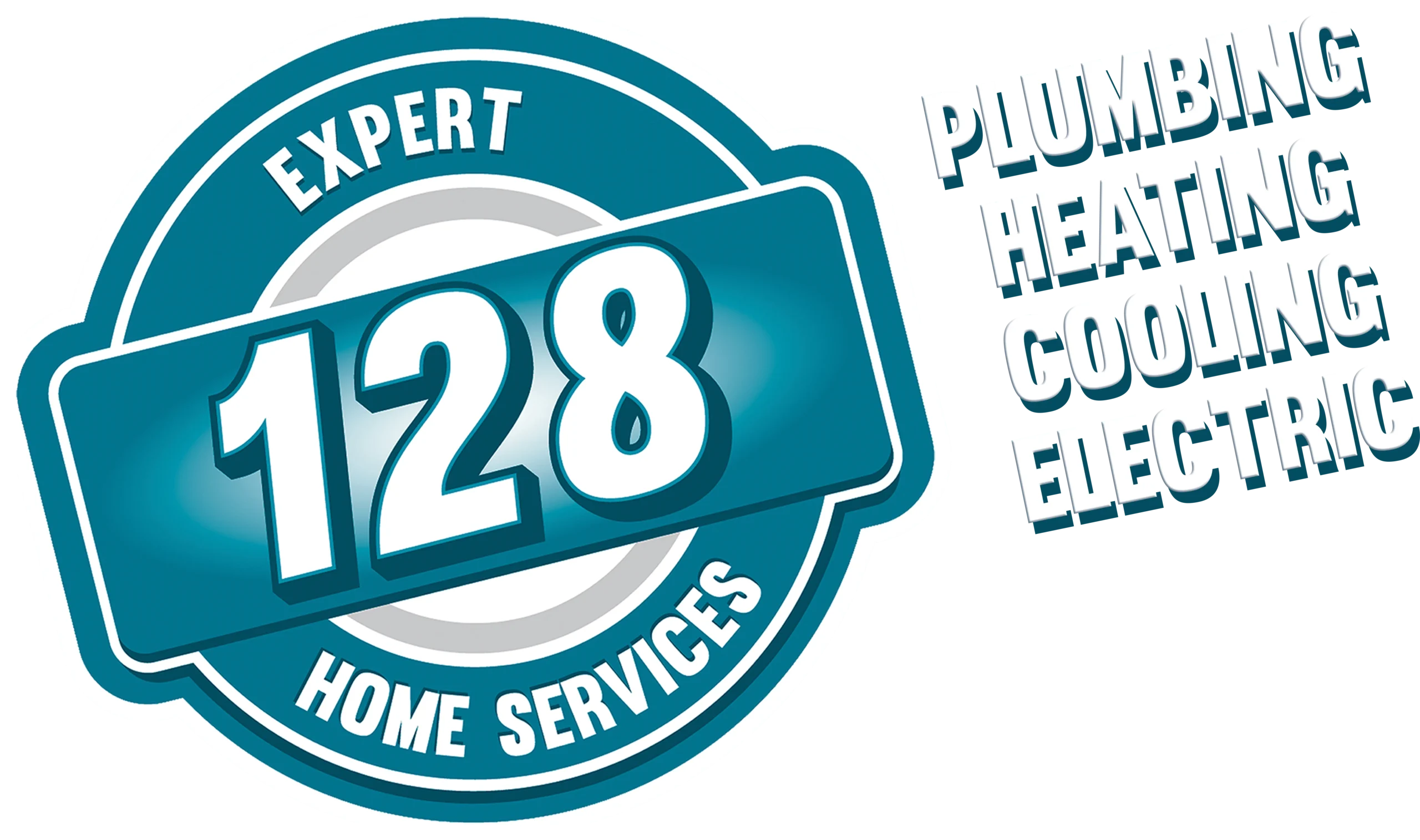
Have you ever wondered, “how long can a heat pump last?” Understanding the heat pump life expectancy is crucial, as it helps you make informed decisions about maintenance, energy efficiency, and when it’s time for a replacement. In this blog post, we will delve into the factors that affect heat pump lifespans, such as type, usage patterns, and proper heating maintenance, so you can maximize your heat pump’s longevity and get the most out of your investment.
Key Takeaways
- Understanding the factors that affect heat pump lifespans can help to maximize performance.
- Proper maintenance and energy efficiency measures are essential for extending a heat pump’s lifespan and improving the heat pump’s life expectancy.
- Increased energy bills, frequent repairs, and deteriorating indoor air quality may indicate it is time to replace your unit. Choose an experienced service provider, like 128 Plumbing, Heating, Cooling, & Electric, with comprehensive offerings for optimal performance.
Understanding Heat Pump Lifespans
Heat pumps are versatile devices that provide both heating and cooling for your home or building all year round, similar to a furnace or air conditioner. Heat pump systems are highly efficient in terms of home temperature regulation and require minimal maintenance, making them a popular choice for an HVAC system, fulfilling cooling system and air conditioning needs.
However, air-source heat pumps have their own advantages. They are generally more cost-effective to install and maintain than geothermal heat pumps and can be utilized in locations where geothermal heat pumps are not a viable option. An air source heat pump, like other types of heat pumps, will have a life expectancy influenced by the specific choices you make, so it’s essential to consider your specific needs and preferences when making a decision on a heat pump type. Additionally, evaluating whether to replace or maintain an existing heat pump is crucial in maximizing its service life.
Air Source vs. Geothermal Heat Pumps
There are two main types of heat pumps: air source and geothermal. Air source heat pumps acquire and transfer heat from the air, while geothermal heat pumps acquire and transfer heat from the ground. Geothermal heat pumps tend to be more efficient and require less electricity compared to air source heat pumps, which function similarly to air conditioners. As a result, geothermal units generally have a longer average lifespan compared to air-source heat pumps.
However, air-source heat pumps have their own advantages. They are generally more cost-effective to install and maintain than geothermal heat pumps and can be utilized in locations where geothermal heat pumps are not a viable option. An air source heat pump, like other types of heat pumps, will have a life expectancy influenced by the specific choices you make, so it’s essential to consider your specific needs and preferences when making a decision on a heat pump type.
Usage Patterns
Another factor that impacts the average life expectancy of a heat pump is its usage pattern. Warm weather can significantly influence the usage patterns and lifespan of a heat pump, as it may lead to more frequent operation during hotter months. A heat pump that is used continuously throughout the year may experience increased strain, leading to a reduced life expectancy. Hence, reflecting on the frequency of your heat pump usage and adjusting accordingly can help extend its lifespan.
Proper maintenance plays a vital role in extending the life of a heat pump. This includes regularly replacing the air filter, as a dirty air filter can put strain on the system, leading to overheating and poor airflow, which can damage the heat pump system and cause parts to wear down more quickly. Maintaining regular upkeep tasks can help your heat pump operate efficiently and extend its lifespan.
Maximizing Your Heat Pump’s Life Expectancy
Focusing on proper heating system maintenance and energy efficiency measures is key to maximizing your heat pump’s lifespan. Adequate maintenance is critical for a heat pump to reach its full life expectancy and keep it operating effectively.
In addition, implementing energy-efficient practices can help reduce the amount of energy needed to heat and cool your home, reducing wear and tear on your heat pump and potentially extending its life.
Proper Maintenance
Periodic maintenance can extend the lifespan of your heat pump and ensure its smooth functioning for a prolonged period. Heat pumps should be maintained on a bi-annual basis, preferably in the spring and fall. Neglecting maintenance can lead to increased strain on the system, overheating of equipment, and decreased airflow, which can ultimately cause damage to the heat pump system and accelerate the deterioration of components.
As a homeowner, you are responsible for monitoring filter conditions throughout the year and replacing them as needed. Regularly changing air filters can help prevent strain on your heat pump and ensure that it remains in optimal condition, ultimately prolonging its life.
Some heat pump installers like 128 Plumbing, Heating, Cooling, & Electric, offer a maintenance membership program so that home and business owners don’t have to worry about heating maintenance at all and can rest easy knowing it’s being properly handled and at the proper cadence to keep systems running smoothly and efficiently.
Energy Efficiency
Energy efficiency plays a significant role in extending the life of a heat pump and decreasing energy costs.
Implementing energy-saving practices can benefit your heat pump in several ways:
- Use a programmable thermostat to regulate the temperature and reduce energy consumption.
- Seal air leaks in your home to prevent heat loss and improve the efficiency of your heat pump.
- Change air filters regularly to maintain proper airflow and prevent strain on the heat pump. By following these measures, you can extend the life of your heat pump, save on utility bills, and contribute to a greener and more sustainable environment.
Common Indicators It’s Time to Replace Your Heat Pump
It’s essential to recognize the signs that it may be time to replace your heat pump. Some common indicators include increased energy bills, frequent repairs, and deteriorating indoor air quality.
Being attentive to these signs can guide your decision on whether to replace your heat pump or if additional maintenance and repairs can extend its life.
Increased Energy Bills
 A notable increase in energy bills could be an indication that your heat pump is becoming less efficient and may need to be replaced. The decrease in effectiveness of heat pumps, leading to longer periods of time required to heat or cool a home, could be a possible cause of rising energy bills. Several factors may contribute to rising energy bills in heat pumps, including:
A notable increase in energy bills could be an indication that your heat pump is becoming less efficient and may need to be replaced. The decrease in effectiveness of heat pumps, leading to longer periods of time required to heat or cool a home, could be a possible cause of rising energy bills. Several factors may contribute to rising energy bills in heat pumps, including:
- Electric resistance heat
- Dirty air filters
- Low refrigerant levels
- Miswired or misconfigured thermostats
- Inefficient insulation
Addressing these issues with appropriate maintenance and energy-efficient actions may extend your heat pump’s life and lower energy costs. However, if your energy bills continue to rise despite your efforts, it may be time to consider a heat pump replacement.
Frequent Repairs
The need for frequent heating repair, especially for a heat pump system over 10 years old, can signal that it’s time for a new heat pump. The most frequent repair issues associated with heat pumps include:
- Defective reversing valves
- Soiled air filters
- Leaking refrigerant
- Non-functioning thermostats
These issues can result from inadequate maintenance, insufficient regular filter changes, defective seals, and uncalibrated thermostats.
Regular maintenance, timely air filter changes, checks for refrigerant line leaks, and thermostat calibration are crucial to avoid recurring repair issues. However, if you find that your heat pump continues to require frequent repairs despite your best efforts, it may be more cost-effective to replace the unit rather than continue to incur repair costs. A reputable technician will be able to assess your unique situation and identify which avenue makes the most sense and is most cost effective over time.
Deteriorating Indoor Air Quality
 Poor indoor air quality can be indicative of a malfunctioning heat pump. An increase in humidity, dust, or allergy symptoms could signify that a heat pump replacement is necessary. Poor indoor air quality with heat pumps can be attributed to the recirculation of stale air, dust, and allergens within the building.
Poor indoor air quality can be indicative of a malfunctioning heat pump. An increase in humidity, dust, or allergy symptoms could signify that a heat pump replacement is necessary. Poor indoor air quality with heat pumps can be attributed to the recirculation of stale air, dust, and allergens within the building.
If you notice a decline in your home’s air quality despite regular maintenance, it may be time to consult with a professional to determine if your heat pump is the cause and whether a replacement is the best course of action. 128 Plumbing, Heating, Cooling, & Electric brings decades of experience to any heat pump system issue and would be able to assist you through this process.
Choosing the Right Company for Your Heat Pump Needs
The selection of the right company for heat pump services and installations is of utmost importance. Factors to consider when choosing a heat pump service provider include their reputation, experience, and service offerings.
A careful evaluation of these factors can assist in choosing a company that will offer superior services and contribute to your heat pump’s maximum life expectancy.
Reputation and Experience
Choosing a reputable and experienced company for heat pump services and installations can guarantee quality work and help you avoid potential issues down the line. Companies with experience are more likely to possess the necessary knowledge and expertise to properly install and maintain a heat pump.
It’s also important to research customer reviews and references to ensure that the company you choose has a proven track record of success and satisfied clients. This can give you confidence in the quality of their work and help you make an informed decision.
Service Offerings
A company like 128 that offers a range of heat pump services, such as repair, installation, and maintenance, can be a valuable resource for all your heat pump needs. It’s essential to find a company that not only specializes in heat pump installations but also provides ongoing maintenance and support to ensure your heat pump remains in optimal condition throughout its life. By choosing 128 Plumbing, Heating, Cooling, and Electric, you’re choosing a trusted parter who will be reliable for all your heating needs.
Summary
In conclusion, understanding the factors that affect the life expectancy of a heat pump, such as type, usage patterns, and proper maintenance, can help you make the most of your investment. By implementing energy-efficient practices, scheduling regular maintenance, and recognizing the signs that it may be time to replace your heat pump, you can prolong its life and ensure optimal performance.
To work with our experts here at 128 Plumbing, Heating, Cooling, and Electric on a heat pump replacement, repair, or maintenance service reach out to us and book your appointment today.
Frequently Asked Questions
Can a heat pump last 25 years?
With modern technology, heat pumps can easily last 20-25 years if taken care of properly.
Should I replace a 20 year old heat pump?
It’s time to consider replacing your 20-year-old heat pump if it’s becoming increasingly expensive to maintain and operate. We typically recommend a replacement when it’s a more cost-effective decision.
How can I extend the life of my heat pump?
Proper maintenance, energy-efficient practices, and adjusting usage patterns can help you extend the life of your heat pump.
What should I look for when choosing a heat pump service provider?
When choosing a heat pump service provider, be sure to look at their reputation, experience, and what services they offer to ensure quality results. 128 Plumbing, Heating, Cooling & Electric is a leader in the home service industry in Massachusetts and brings that expertise to all heating pump service jobs they work on.




